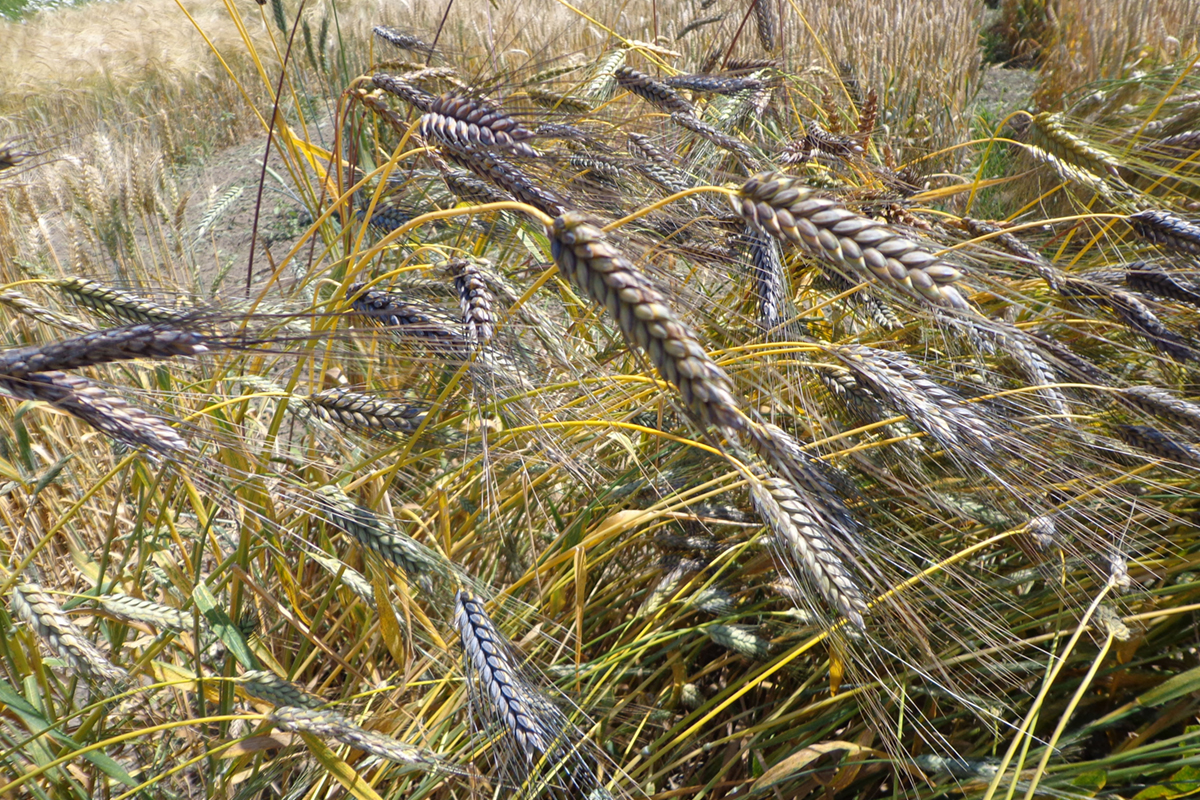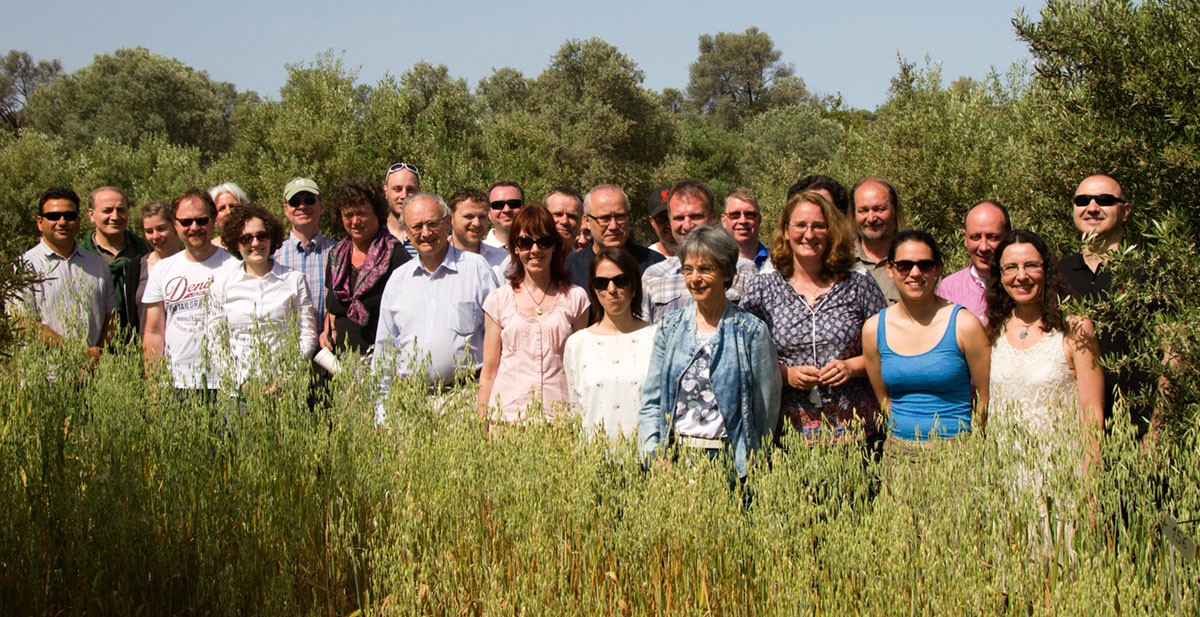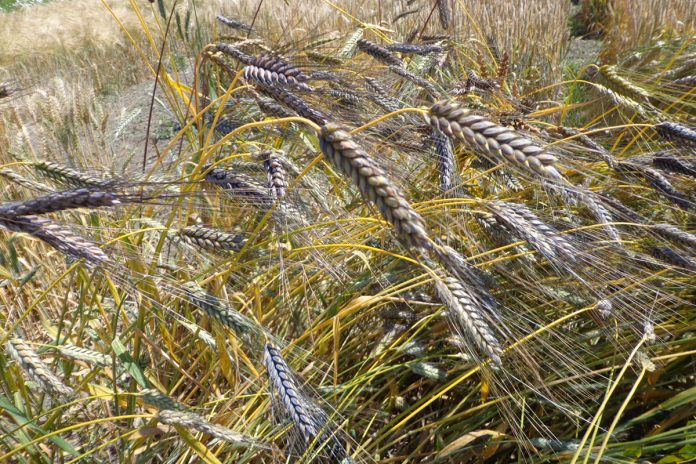Dagmar Janovská and Martina Eiseltová from HealthyMinorCereals project explain the scope of their research concerning five minor cereals
The multidisciplinary HealthyMinorCereals project respond to consumers’ increasing demands for nutritious and innovative food produced sustainably
The intensification of agriculture that took place since the Second World War has resulted in impoverished agricultural landscapes with many negative impacts on the environment. Increased mechanisation and farm size, simplified crop rotation and an increase of less-diverse cropping systems along with the loss of landscape features, such as field non-crop margins, tree alleys and other important landscape elements, e.g. wetlands, have led to substantial reduction in landscape diversity and the opening of water and matter cycles.
Whilst nature tends to recycle water and nutrients, in short, localised cycles, modern conventional agriculture is dependent on high external inputs (fuel, fertilisers, pesticides and irrigation) and typically results in increased soil erosion, nutrient leaching, and water loss through artificial drainage systems as well as fast surface runoff.
Further problems have been brought about by intensive crop breeding, focused primarily on achieving high yields. Crop production has doubled but at a high cost. As the breeding programmes have focused only on few crop species, the variety of crops grown commercially for human consumption has been greatly diminished.
As a result, cereal production in Europe is today dominated by two cereal species – common wheat and barley – that have been intensively bred for high yields, whilst many traditional cereal species and varieties have vanished from fields or their cultivation areas have substantially decreased.

New interest in traditional cereal species
Demands for a more sustainable agriculture, less dependent on external inputs and better suited to local conditions, have revived interest in diverse traditional cereal species. No longer widely grown in Europe, they are now classified as ‘minor cereals’. Yet these minor cereal species are well suited to organic and sustainable agriculture. They can also have higher concentrations of micronutrients and bioactive compounds essential for a healthy nutrition. As the demand for healthy, nutritious food is growing amongst consumers, the interest of food producers in traditional cereal varieties has grown.
The EU-funded HealthyMinorCereals project has focused its research on five minor cereals – einkorn, emmer, spelt, rye and oats, in particular, investigating genotypes that have fallen out of use but have been stored in gene banks. It is being found that some of the less-developed cereal species and varieties may have higher concentrations of nutrients and bioactive compounds, and hence higher nutritional value than the high-yielding varieties. Also, they are more robust to withstand adverse climatic conditions, resist crop diseases, grow better on marginal soils and are suitable for low-input, more sustainable, agriculture.
Aims of the HealthyMinorCereals project:
- Employ state-of-the-art methods for genetic characterisation of minor cereals and their wild relatives, to identify genetic markers related to disease resistance and nutritional quality that can be used in minor cereal breeding programmes;
- Test minor cereal genotypes with promising traits for yield, resistance to fungal diseases, and nutritional quality in field trials performed in European regions with differing soils and climates, to optimise cultivation methods under organic and conventional agricultural systems;
- Analyse grain nutritional composition of minor cereal varieties and evaluate nutritional impacts on human cells using human cell cultures;
- Optimise grain processing methods (such as milling) and final product manufacturing (baking, etc.) to preserve high nutritional quality of final products;
- Study producer and consumer behaviour and expectations to aid the successful development of minor cereals products and marketing strategies and;
- Provide effective knowledge and technology transfer especially to European small and medium-sized companies (SMEs) involved in minor cereal production, for rapid and comprehensive utilisation of project results.
In an upcoming series of articles, we will focus on new findings concerning the genetic variability of minor cereal species and varieties and reveal genotypes with promising traits for yield, resistance to fungal diseases and nutritional quality, present results on the nutritional composition of the studied minor cereal varieties and their nutritional impacts on human cells, address suitable grain processing methods that preserve a high nutritional quality of the final food products, and present case studies on producer/consumer behaviour that may help to develop suitable marketing strategies to promote minor cereals in the human diet.
Project partners

The HealthyMinorCereals project team
– Crop Research Institute (Czech Republic)/ Coordinator;
– Estonian Crop Research Institute (Estonia);
– Volakakis Nikolaos (Greece);
– Gilchesters Organics Ltd (UK);
– Grupa BGK Spolka z.o.o (Poland);
– Getreidezüchtung Peter Kunz (Switzerland);
– Hungarian Research Institute of Organic Agriculture (Hungary);
– Institute for Food and Environmental Research e.V. (Germany);
– PRO-BIO Trading Company Ltd (Czech Republic);
– Research Institute of Organic Agriculture (Switzerland);
– Sabanci University, Faculty of Engineering and Natural Sciences (Turkey);
– Selgen a.s. (Czech Republic);
– Stolzenberger’s Bakery (Germany);
– University of Kassel, Section of Organic Breeding and Agro-Biodiversity (Germany);
– University of Natural Resources and Life Sciences, Vienna (Austria) and;
– University of Newcastle-upon-Tyne (UK).
Funding
This project has received funding from the European Union’s Seventh Framework Programme. under grant agreement number 613609.
Please note: this is a commercial profile
Dagmar Janovská
Project Coordinator
Tel: +420 233022406
Martina Eiseltová
Dissemination Manager
Tel: +420 233022295











